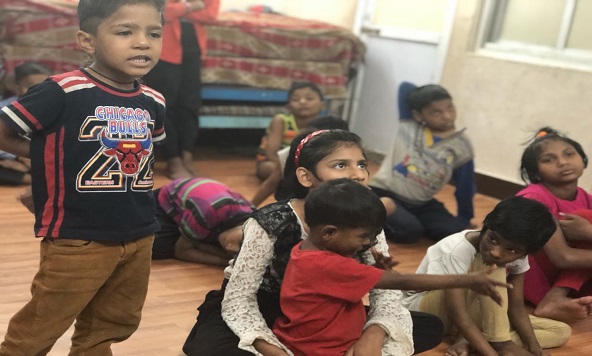Enrichment Activities for Children

Schools have an opportunity to enhance children's social and emotional growth, as well as their academic knowledge. The following activities foster self-understanding, positive peer interaction, initiative, and learning.
- Have the children list on paper their age, height, color of hair and eyes, and any other description you would like them to include, but not their name. Then have them make either a "Me" or "Things I Like" collage using magazine pictures and/or a variety of art materials. Have them staple their list to the corner. Read the description as you hold up each one, and have the children guess the creator's name. Then offer the child an opportunity to discuss his or her picture. To further a sense of belonging and to stimulate dialogue, display the works of art in an "Exhibit Hall".
- Ask the children what they would like to know about themselves when they were younger. List the questions on the board. Some examples are:
Have the children think about or copy the questions they want to ask their parent or guardian. Then have them to draw and/or write a story about themselves based on the adult responses. The students may want to include photographs in an "All About Me" story or book to share with the class.
- In what year was I born?
- Where was I born?
- Did I live in any other city or state?
- What was my favorite story?
- What did I like to do best?
- What was my favorite game, toy or song?
- What food did I like best?
- What did you like best about me?
- Have the students think about a family tradition and/or family object they would like to learn more about. Ask them to inquire about the history of a tradition or special object. For example:
- Why do we celebrate ?
- Why is a necklace, picture, painting or other family item special?
- Have them draw a picture and/or write about what they discovered. Then give them an opportunity to discuss their findings with a partner or the class. If a child reports an unusual holiday or tradition, with his or her permission, ask the child or a relative to share the information on their special day.
- Ask the children what they do well. For example, run, read, help others, cook, babysit, play ball, draw, spell, do math, skate, sing, tutor others, fix things, do puzzles, swim, dance, act in plays. Because children who have goals are more likely to be self-motivated, have each child explore future occupations with their own strength in mind. Ask them to identify what they want to be or do when they grow up. What is important is not that a child fulfill his or her specific career goal, but for the child to visualize him or herself as successful. Have the students draw self-portraits depicting themselves in future roles. Some examples are:
Provide an opportunity for children to explain their future goal to their classmates and/or to a group of younger children. Have them brainstorm what they need to do to meet their goals. Put the list on a poster as a reminder to do their best.
- Athletic, a professional ball player?
- Reader, a librarian
- Cook, a chef
- Swimmer, a lifeguard
- Fix things, an engineer
- Help others learn, teacher
- Take care of people, doctor
- Singer, performer.

Leah Davies received her Master's Degree from the Department of Counseling and Counseling Psychology, Auburn University. She has been dedicated to the well-being of children for over 44 years as a certified teacher, counselor, prevention specialist, parent, and grandparent. Her professional experience includes teaching, counseling, consulting, instructing at Auburn University, and directing educational and prevention services at a mental health agency.
Besides the Kelly Bear resources, Leah has written articles that have appeared in The American School Counseling Association Counselor, The School Counselor, Elementary School Guidance and Counseling Journal, Early Childhood News, and National Head Start Association Journal. She has presented workshops at the following national professional meetings: American School Counselor Association; Association for Childhood Education International; National Association for the Education of Young Children; National Child Care Association; National Head Start Association; National School-Age Child Care Alliance Conference.